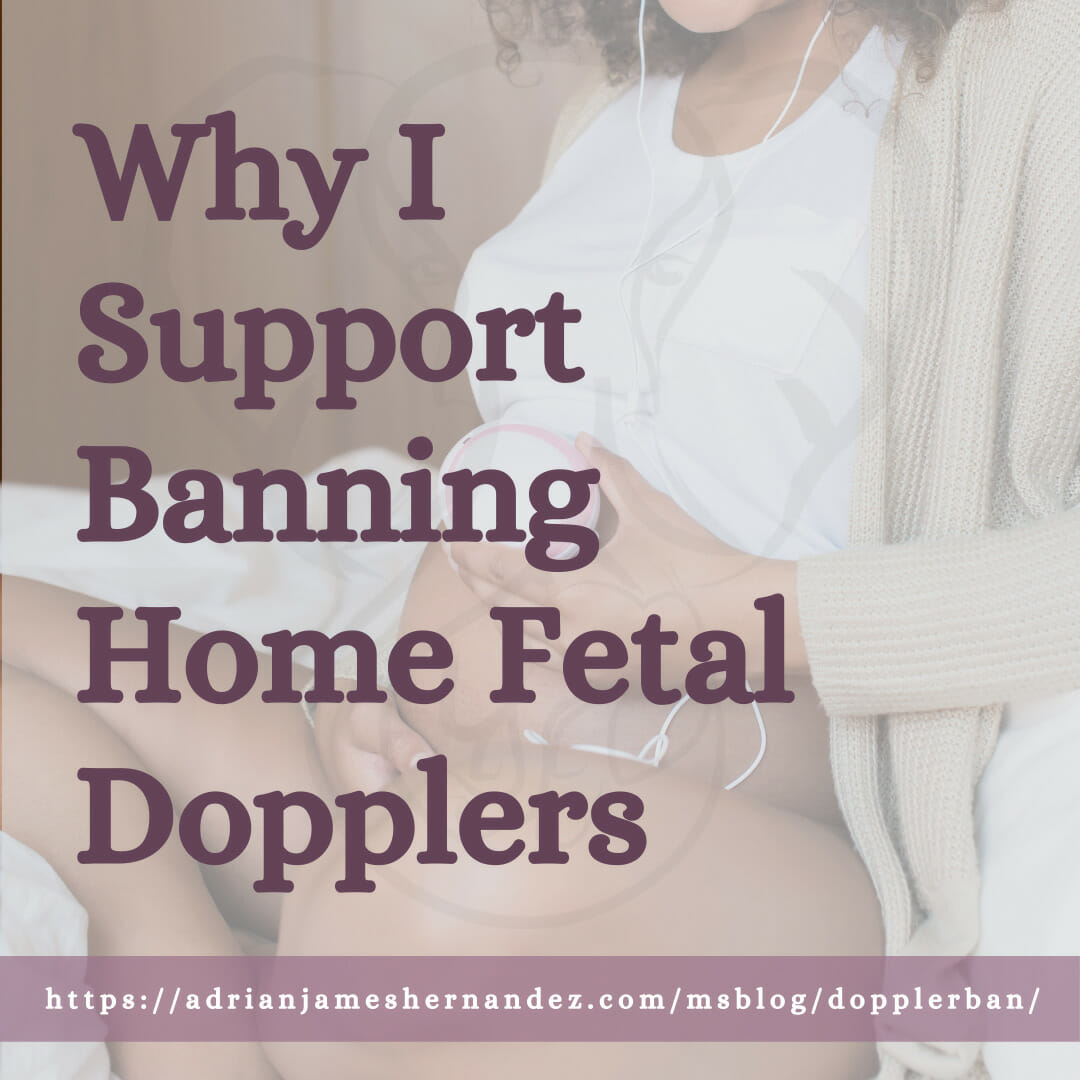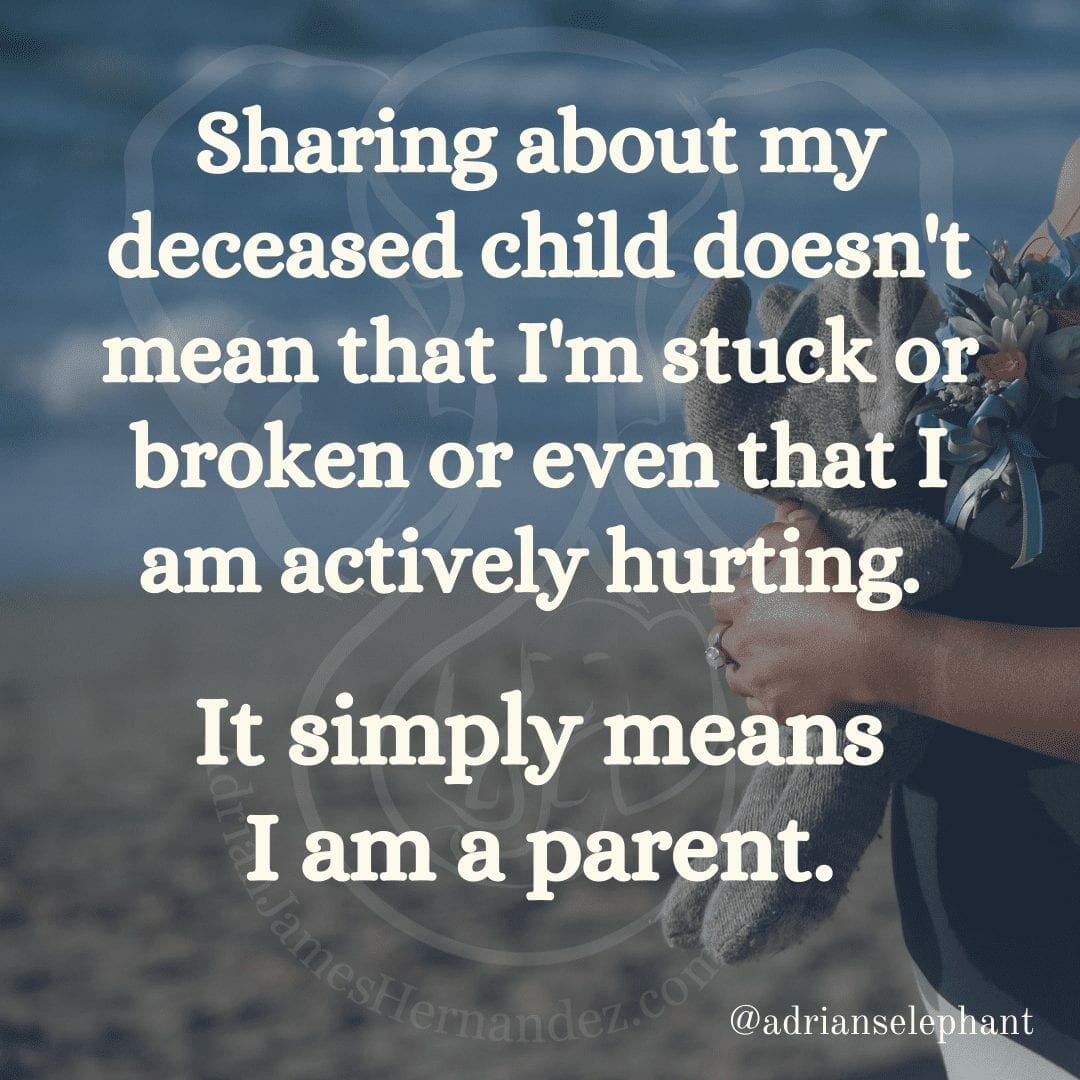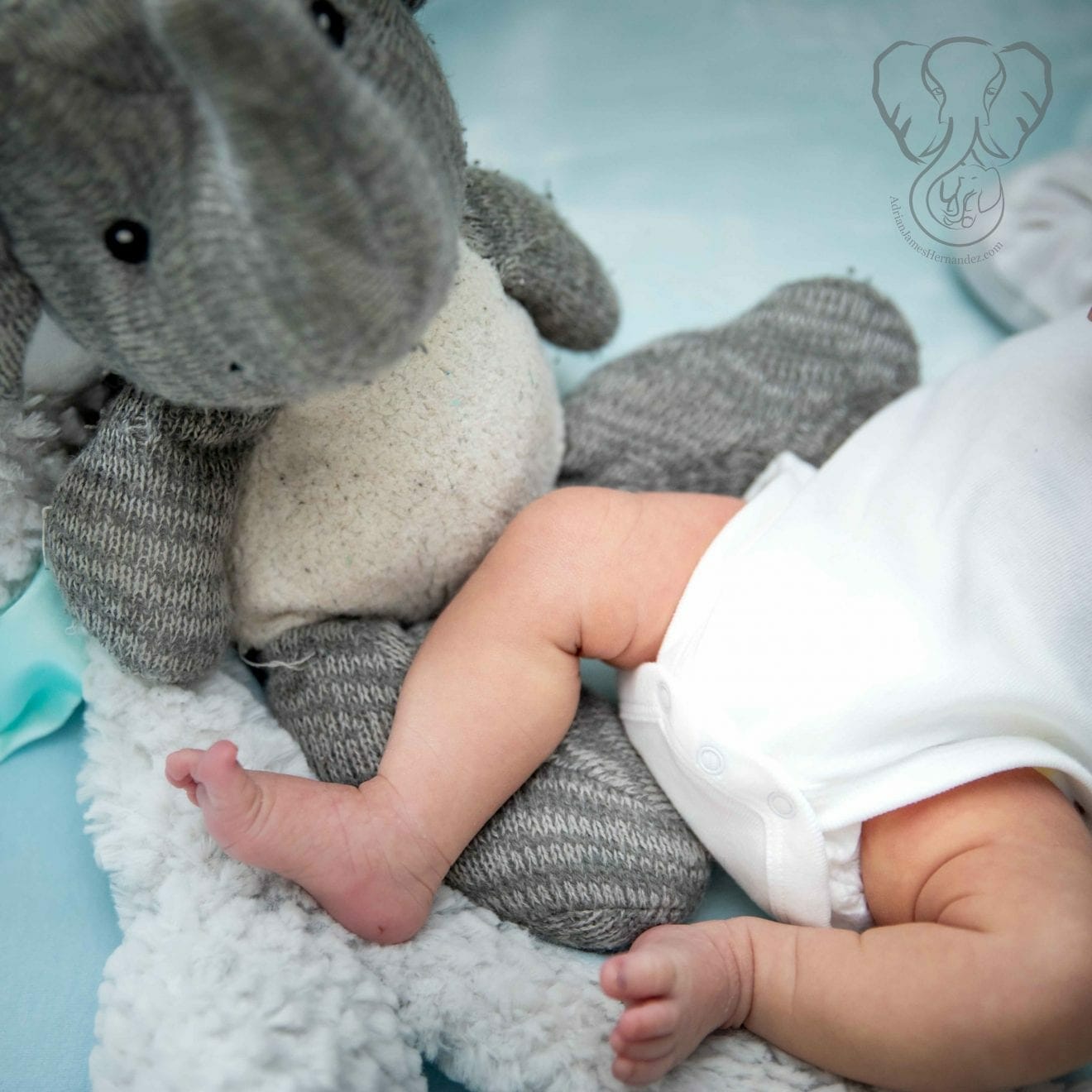Update, 10 June 2021: After consideration, I don’t really think home dopplers should be banned. I do think we need to take a deeper look at when and how they are currently being used and marketed. As a device marketed for reassurance, they do not fulfill this purpose and can encourage parents to ignore legitimate concerns, potentially resulting in fetal death. I will be writing an updated piece on this at some point in the future.
A few years ago, I ran across an article from an organization called Kicks Count. Kicks Count’s primary objective is to share information on the importance of tracking fetal movement during pregnancy. I am especially interested in this subject because Adrian was stillborn after my midwives erroneously told me it was normal for a fetus to move less towards the end of pregnancy. A week after that conversation, he died.
But while I understood and agreed with the Kicks Count message on the importance of fetal movement tracking, I was surprised to see them advertising a new campaign to ban the sell of home fetal dopplers in the UK. While I hadn’t personally used a home doppler in my first pregnancy, I knew several women who did, and I had heard nothing but positive experiences. So I was curious about the reasons for this campaign.
After looking into it more, I started to understand. Although fetal dopplers can contribute to a fun experience at home, there are unfortunate downsides:
- As a medical device, fetal dopplers are notoriously difficult to use. It is common for a non-medical user to either not be able to locate the fetal heartbeat, or to mistake the mother’s heartbeat, the placenta, or other noises in the body for the fetus. According to Kicks Count CEO Elizabeth Hutton, “Midwives train for 3 years to be able to differentiate these sounds using equipment costing upwards of £400. A £30 device from Amazon does not operate to the same high standard, and a YouTube tutorial can’t possibly hope to offer you the same education and skill that a midwife has.”
- Further, even when a fetal heartbeat can be located, the presence of a heartbeat is no guarantee that a fetus is healthy. As the Kicks Count literature points out, all humans have a heartbeat…up until the moment they die. And once a fetus is dead, at that point is it too late for medicine to make a difference.
In my opinion, this second bullet is the more important of the two. Because there is an unfortunate tendency in the pregnancy community to associate the presence of a fetal heartbeat with reassurance that all is well. And until you have lost a child, who only hours before was kicking and “fine,” you generally don’t understand that the presence of a heartbeat really means nothing, especially if you are concerned.
To quote another piece of the Kicks Count literature, “If you saw someone collapsed in the street, would you check their pulse and walk away? Or would you call an ambulance?”
This is why the use of fetal dopplers at home can be dangerous. Because too many parents rely on them for reassurance, when they actually provide nothing of the kind. If I had used a fetal doppler in my first pregnancy, I would have gone to bed thinking my son was perfectly fine…and he still would have died.
All of this aside, I do know women in the loss community who use fetal dopplers in subsequent pregnancies, and this honestly baffles me. And I think this is why organizations like Kicks Count are pushing to make them illegal. Because sometimes we don’t want to acknowledge that things that feel comforting are actually bad for us. And unfortunately, home fetal dopplers belong on that list.
In my opinion, the single best thing you can do to safeguard a subsequent pregnancy, beyond regular prenatal care, is to monitor and track the movements of your child. And if you are ever concerned, for any reason, contact your prenatal provider or go directly to Labor and Delivery. I did it frequently in my second pregnancy. And if I had done it in my first, it would have saved my child.
(Originally published at Quora.com, in response to the question, “How does using a fetal doppler help someone who has had previous loss of pregnancy while pregnant and is it safe or recommended to monitor pregnancy progression?”)
Related Posts:
Miranda’s Blog: Warning Signs Prior to Adrian’s Stillbirth
Miranda’s Blog: Why I Track Fetal Movements Religiously with my Second Pregnancy

















































































































































































